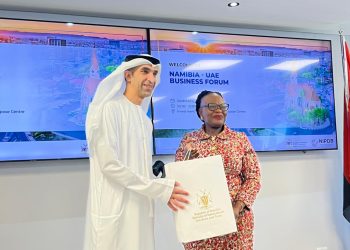
SNC Incorporated Managing Partner Shakwa Nyambe has called for Namibia to implement targeted incentives to lure more companies into its deep-water oil and gas exploration sector.
Nyambe emphasised the critical need for the government to consider measures such as reducing royalty and tax rates for companies willing to undertake the significant challenges associated with drilling in deeper waters.
He suggested that by easing work program requirements, Namibia could increase interest in its ultra-deepwater blocks, which currently remain largely unexplored.
“To attract more companies to acquire these blocks, we should consider incentivising them,” Nyambe told the Namibia Oil and Gas Conference.
He highlighted that the financial burden and technical complexities of ultra-deepwater exploration make it essential for the government to intervene.
“Reducing royalty and tax rates for those drilling in deeper water and relaxing work programs could make these projects more viable and attractive to investors,” he added.
The challenges of drilling at water depths of 4,000 metres or more are significant as companies face high exploration and production costs, complex logistics, and infrastructure challenges, alongside harsh environmental conditions and advanced technological requirements.
He noted that these factors have led many companies to shy away from Namibia’s deeper blocks, despite the potential rewards.
“The technical complexity and advanced technologies required for ultra-deepwater exploration are a deterrent,” Nyambe said.
He also pointed out that the environmental risks and stringent regulations, combined with security and safety concerns, add layers of difficulty for companies considering these projects.
Nyambe pointed to successful incentive models from other countries, such as Brazil and Angola, as examples for Namibia to consider.
Brazil’s REPETRO and REPETRO-SPED regimes offer reduced corporate tax rates for deep-water projects, tax exemptions on imported equipment, local content waivers, and royalty reductions on incremental production.
“In Brazil, they have implemented REPETRO and REPETRO-SPED, which provide for reduced corporate tax rates for deep-water projects, tax exemptions on imported equipment, local content waivers, and royalty reductions on incremental production,” Nyambe said.
Similarly, Angola’s Hydrocarbon Exploration Strategy 2020-2025, under Presidential Decree No. 282/20, provides reduced corporate tax rates, accelerated depreciation allowances, tax exemptions on imported equipment, and reimbursement of exploration costs.
“Angola also offers a suite of tax benefits, including reduced corporate tax rates, accelerated depreciation allowances, and tax exemptions on imported equipment, along with reimbursement of exploration costs,” he said.







